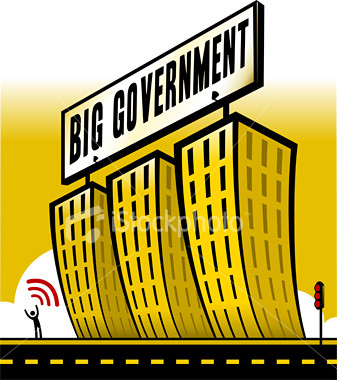
The core of “Obama Economics” is the recently enacted Dodd–Frank Wall Street Reform and Consumer Protection Act. The document is quite bulky — 2,300 pages. It has more than 500 new rules. Its supporters compare it to Roosevelt’s New Deal, while the opponents believe that it’s a waste of time, money, paper and voters’ sympathy. Let’s try to figure it out.
For example, the government has forbidden banks from investing more than 3 percent of their capital in risky operations. That’s great. If you want to earn more, more power to you. But do it on your own. Don’t touch the innocent people’s money. The special tax on banks looks logical. The White House plans to use it to (at least partially) recapture the budgetary costs of bailing out the banks. The Act also plans to create a giant Bureau of Consumer Financial Protection. It will regulate anyone who gets close to Americans’ personal money, such as banks, insurance companies, mortgage agencies, debt collectors, etc. Every American has the right to call and complain. The Bureau will rescue people from fraud and illegal fees.
A new office will be established to monitor private equity funds. Another one will be responsible for effectively liquidating failed financial monsters. Why do this, when there are already nine other national regulators? The answer is unknown to me. The latter, by the way, will be driven into the Financial Stability Board, which will monitor systemic risks. Loans, on the other hand, will not be monitored. Why? I’ll give you one guess. That’s right — lobbyists got them off the hook.
Now, let’s talk about rating agencies (RA). Yes, they were wrong. Sometimes they were way off, thereby unwittingly contributing to the growth of the economic crisis. “Obama Economics” has a radical solution to the problem. Now the victims can go to court. That’s original. In essence, it’s like punishing the financial thermometer, to make it take better measurements. One may very well wonder about using the same approach in other areas, such as meteorology. Why not? If a meteorologist promises sunny weather, but it rains, let’s prosecute. Take action against bad predictors, using a wet bald-spot as a key piece of evidence. The RA is now in disarray and withdrawing its ratings. Note that without those ratings, the financial markets cannot function. And there is tremendous turnover — $1.3 trillion a year. As in any other market, the Chinese are immediately rushing in and offering their ratings. They are decreasing the U.S. government securities’ ratings.
The essence of what’s happening in America is the growing influence of the government. There are going to be more laws, regulations, instructions, reports, checks and regulators in all areas of the economy. And of course, more bureaucrats. As in any other country, some of these bureaucrats will be complete morons. If they’re brutal, then the U.S. will lose the race for investments. Notably, domestic capitalists will leave first. Why not? They’re free people in a free country. Right now, this is a serious topic of discussion across the ocean.
Yet, I’m going to predict that President Obama’s policies will be a success. Not because they’re so wonderful or comparable to Roosevelt’s New Deal, but because they’re timely. America’s enormous economic elephant has overcome the crisis and has gotten better. It will improve, regardless of the government’s actions. What the government should do now is 1) climb on top in a timely manner, as a driver, 2) not get in the way and 3) prepare for new financial shocks. “Obama Economics” has done a good job with respect to the first objective. Now, any economic success will be attributed to the government. The second objective was not performed as successfully. As far as the third objective goes, Chris Dodd has put it best when he said, “It will take the next economic crisis, as certainly it will come, to determine whether or not the provisions of this bill will actually provide this generation or the next generation of regulators with the tools necessary to minimize the effects of that crisis when it happens.”
None of this is of any value to Russia. The U.S. has room to expand the power of bureaucracy, whereas we can’t do so, due to corruption. Until we get rid of corruption, any new offices will become places for getting bribes. In a case like that, it’s better not to have any reforms, thereby protecting our money.

You have already predicted the future:
“None of this is of any value to Russia. The U.S. has room to expand the power of bureaucracy, whereas we can’t do so, due to corruption. Until we get rid of corruption, any new offices will become places for getting bribes. In a case like that, it’s better not to have any reforms, thereby protecting our money.”
The simple fact of the matter is that people who spend other people’s money always squander about 80% of it, and left at it long enough begin to siphon off a share for themselves since they know it is squandered anyway. Large government – corruption.
Obama is introducing foreign level corruption to our nation. His economics have already completely failed and we are going to throw the bums out and start repealing all of this insane legislation. Listen to the tea parties, the actual phenomenon may not last all that long. The movement exists toward a purpose.
Once the initial purpose is achieved and real Americans are again in positions of authority, we are going to roll back 100 years of socialism.
Then you will see an economic rebound.
Best regards,
Gail S
http://www.backyardfence.wordpress.com